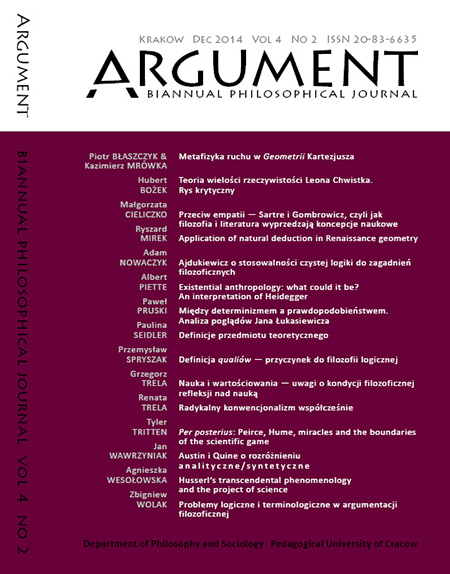Husserl’s transcendental phenomenology and the project of science
Słowa kluczowe:
philosophy, consciousness, transcendental reduction, subjectivity, cognitionAbstrakt
The article presents Edmund Husserl’s idea of transcendental phenomenology in the perspective of the project of science. This aspect of Husserl’s writings was pointed out by, for example, Rudolf Bernet, Manfred Brelage, Iso Kern, Eduard Marbach, Eugen Fink, Ludwig Landgrebe, and Roman Ingarden. The main aim, realised in the article is to prove the main hypothesis claiming that transcendental phenomenology is closely connected with Husserl’s conception of philosophy, the idea of philosophy as a science (eidetic and transcendental). The project of transcendental science and knowledge is also connected with Husserl’s conception of transcendental reduction taken as a mode of revealing those constitutive achievements of consciousness which were covered in the natural attitude. In the paper, I focus on presenting the most important points (epistemological, methodological, and transcendental) connected with Husserl’s evolution of phenomenology in the perspective of the project of science.


